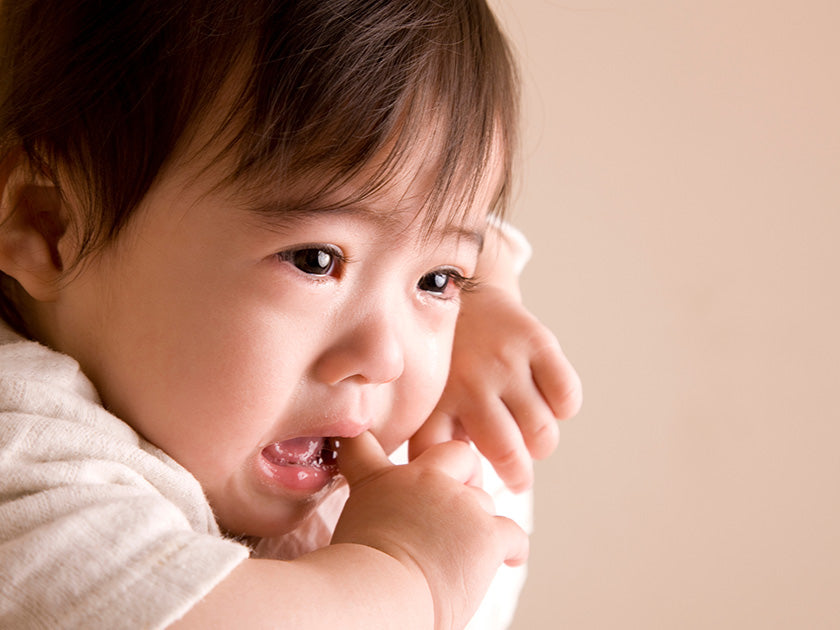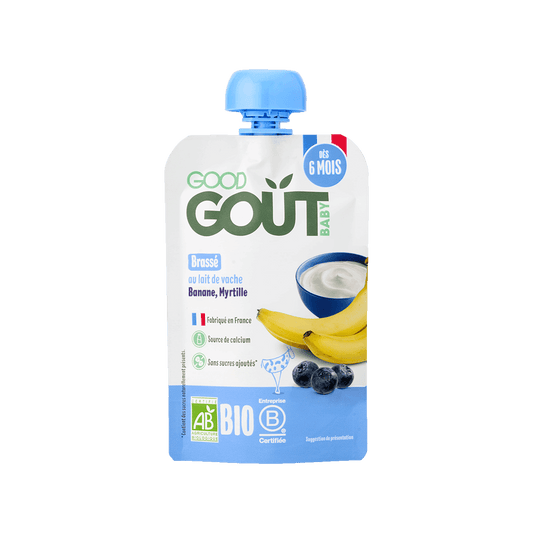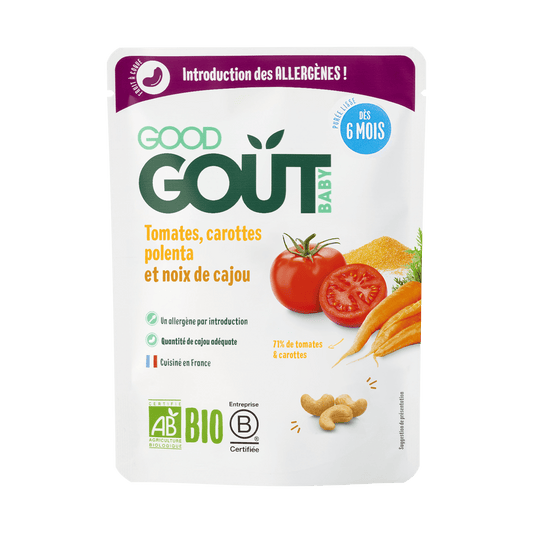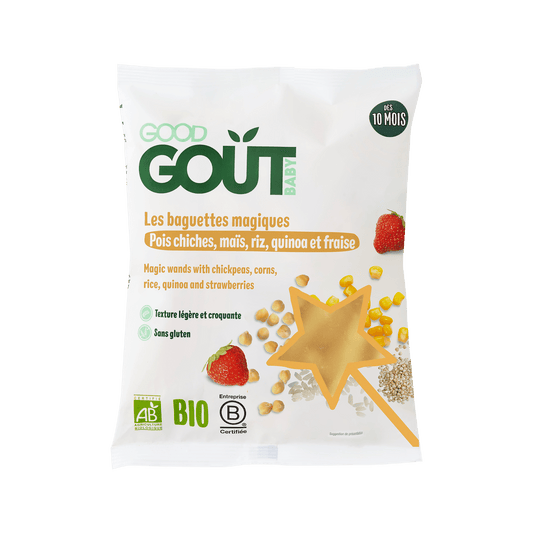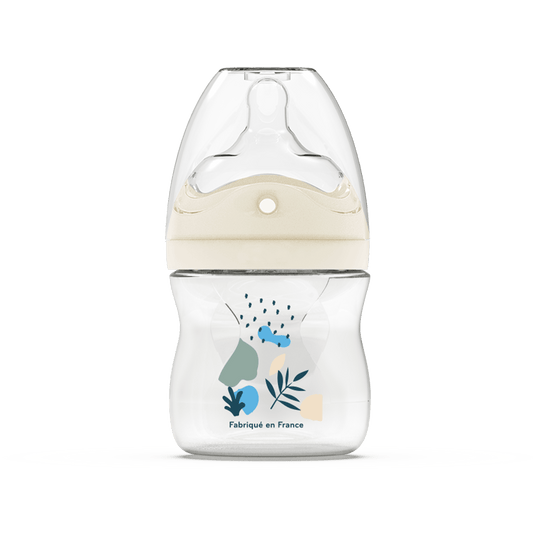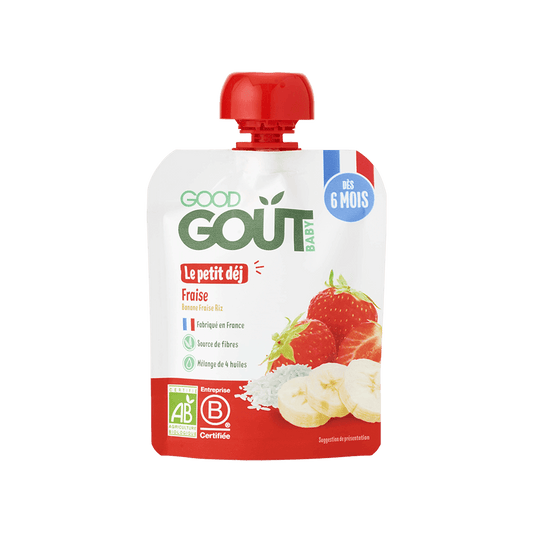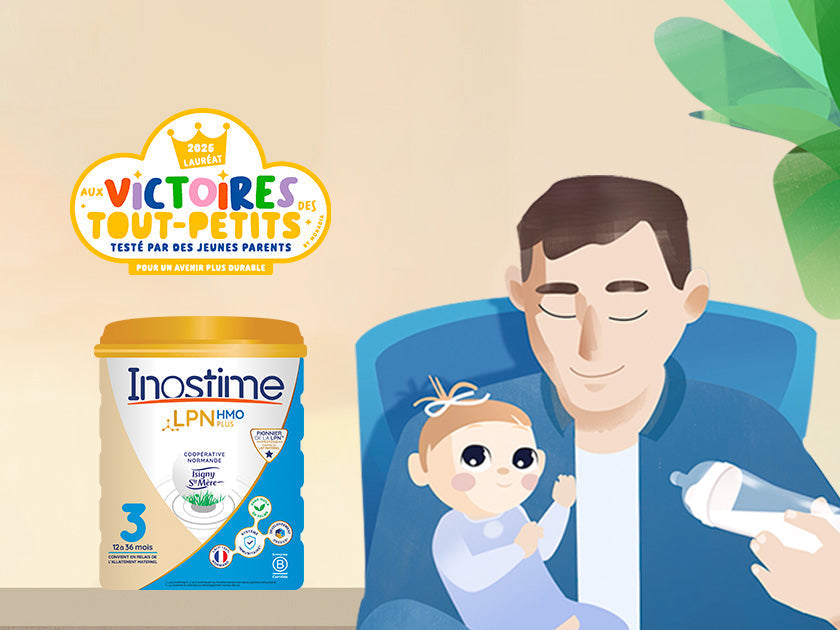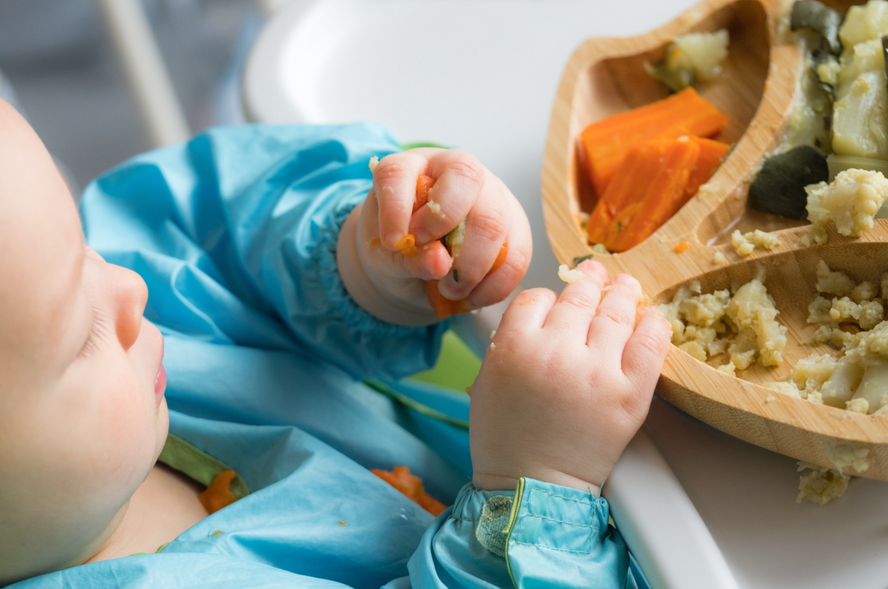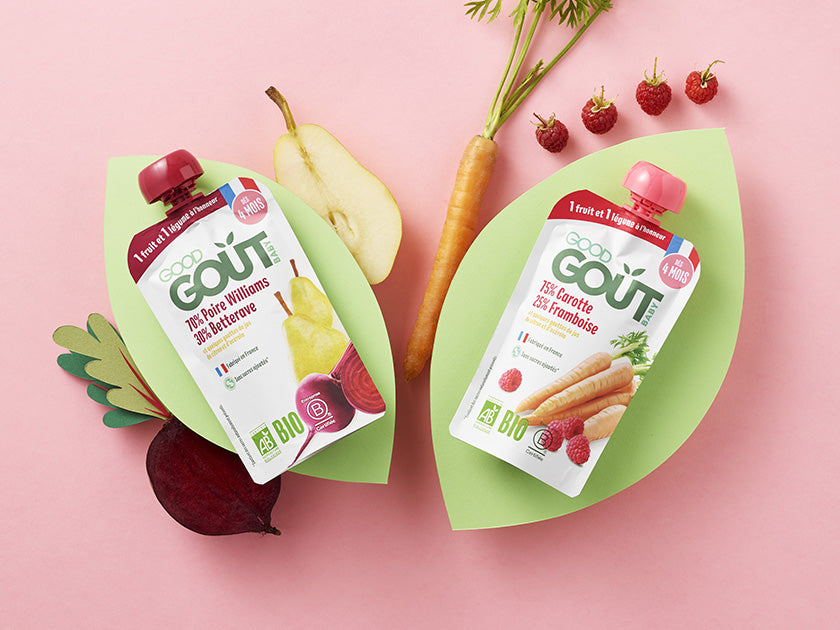Weaning your baby often means digestive problems and constipation! There's no point beating around the bush; we're sharing our top tips with you!
These signs that help you know if your baby is constipated 1
Beyond observing your child's stools (if they are harder than usual, for example) , several clues can point you towards an episode of constipation:
- Your little one's irritability (when you're constipated, it's not easy to smile)
- A small, bloated, swollen, hard and painful belly
- Decreased stool frequency
- Discomfort and pain during defecation
- Blood in the stool
Most of the time, constipation in children is temporary and caused by dietary factors. And since you're the one putting on the apron, it's relatively easy to correct the situation!
Common causes of constipation include bottles that are not liquid enough (when the amount of water is insufficient compared to the amount of powdered infant milk), when the mother cannot or does not want to breastfeed, a lack of water , or a diet that is too low in fiber. Finally, some children also react more than others to the discovery of a new food: this is particularly the case when introducing solid foods.
Important notice: Breast milk is the ideal and natural food for infants.
What foods should be given to a constipated baby ?
One of your allies in fighting baby's constipation is fiber . Foods that contain fiber help regulate bowel movements naturally.
- In the fruit family, we ask for prunes, apples, plums, strawberries, raspberries and pears, which can be offered in compotes!
- In the vegetable family, we ask for green vegetables such as spinach, artichokes, leeks, broccoli, beans or even zucchini!
- And finally, don't forget whole grains and legumes like lentils or chickpeas! All of these foods are ideal for a constipated baby.
The superpowers of fibers 3
Fiber-rich foods are so popular in cases of constipation because they help keep your bowel movements functioning properly . Fiber directly affects the consistency of your stools, increasing their volume and, above all, making them softer. And if you're still breastfeeding, a fiber-rich diet will also help your baby maintain good bowel function.
Hydration: Your Anti-Constipation Weapon
Too often forgotten, water also plays a key role in digestion. It is essential for the proper functioning of the intestine and allows fiber to work at full capacity and soften stools... After 6 months, you will therefore need to take particular care to hydrate your baby well , especially if he or she is constipated. Don't hesitate to offer him or her water between meals.
As you will have understood, drinking, drinking, drinking and drinking more water, even if you have diarrhea, is essential to reduce loose stools.
How to prevent baby constipation? 4
As the saying goes, "an ounce of prevention is worth a pound of cure!" When it comes to constipation in babies, prevention is also a good option. If your baby is easily constipated, then you may want to avoid certain foods like rice or quince.
Physical activity also helps keep little ones' bowels functioning properly. A fidgety baby is therefore less likely to be constipated! 5 You can get them moving by pedaling their little legs.
Finally, you can also improve your little one's intestinal comfort by gently and slowly massaging their tummy. Simply make large, clockwise circles: not only will they love this little moment of well-being, but these massages will also have a good chance of improving their bowel movements.
If, despite all your efforts, it is difficult and lasts, do not hesitate to consult a doctor.
Sources
- https://www.mpedia.fr/art-son-petit-ventre/
- https://naitreetgrandir.com/fr/sante/naitre-grandir-sante-enfant-constipation-selle/
- https://badgut.org/centre-information/sante-et-nutrition/fibres-alimentaires/?lang=fr
- https://www.youtube.com/watch?v=HFAeliGqM_4&ab_channel=LaMaisondesMaternelles
- https://www.ameli.fr/assure/sante/themes/constipation-enfant/bons-reflexes
